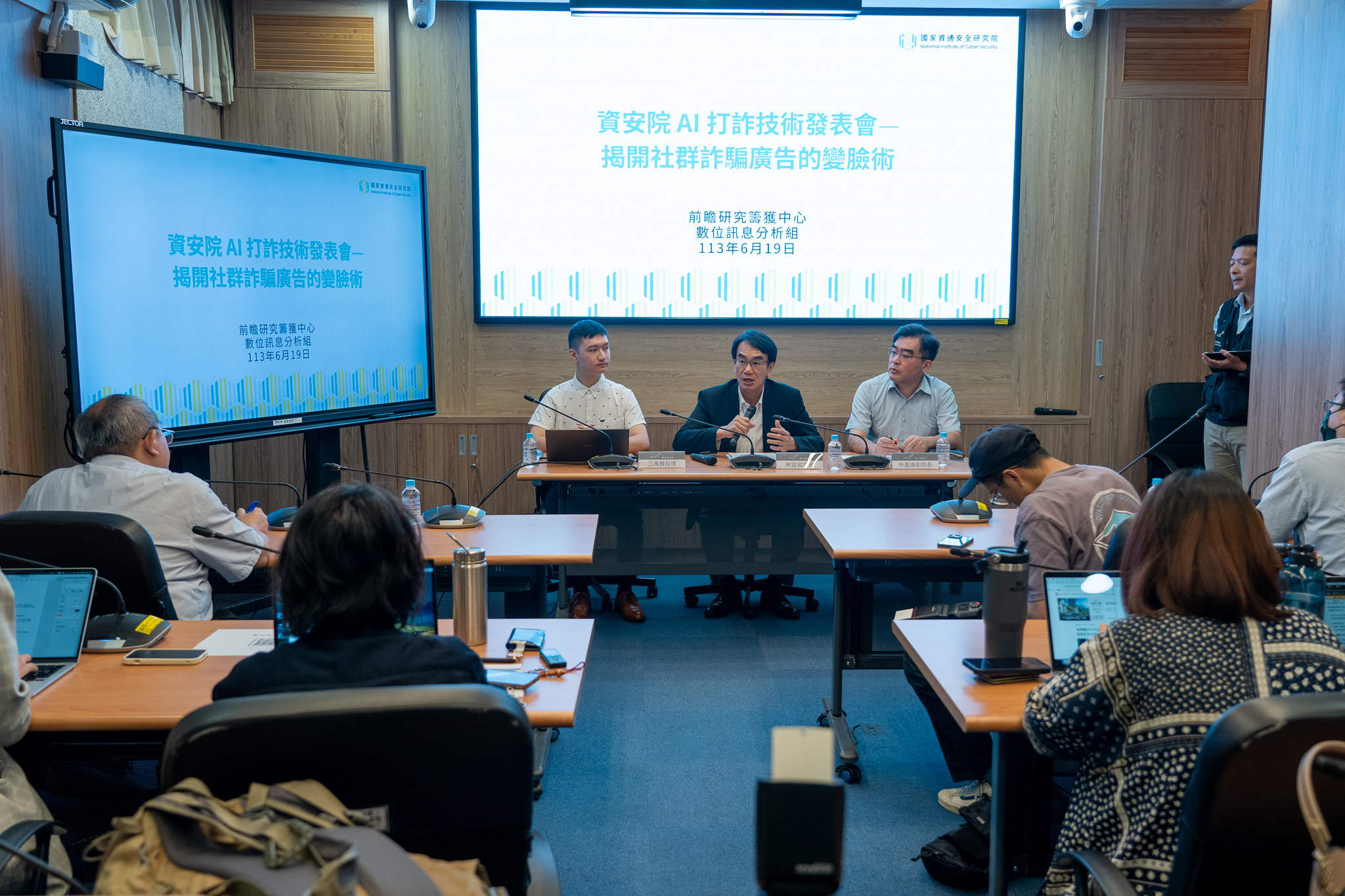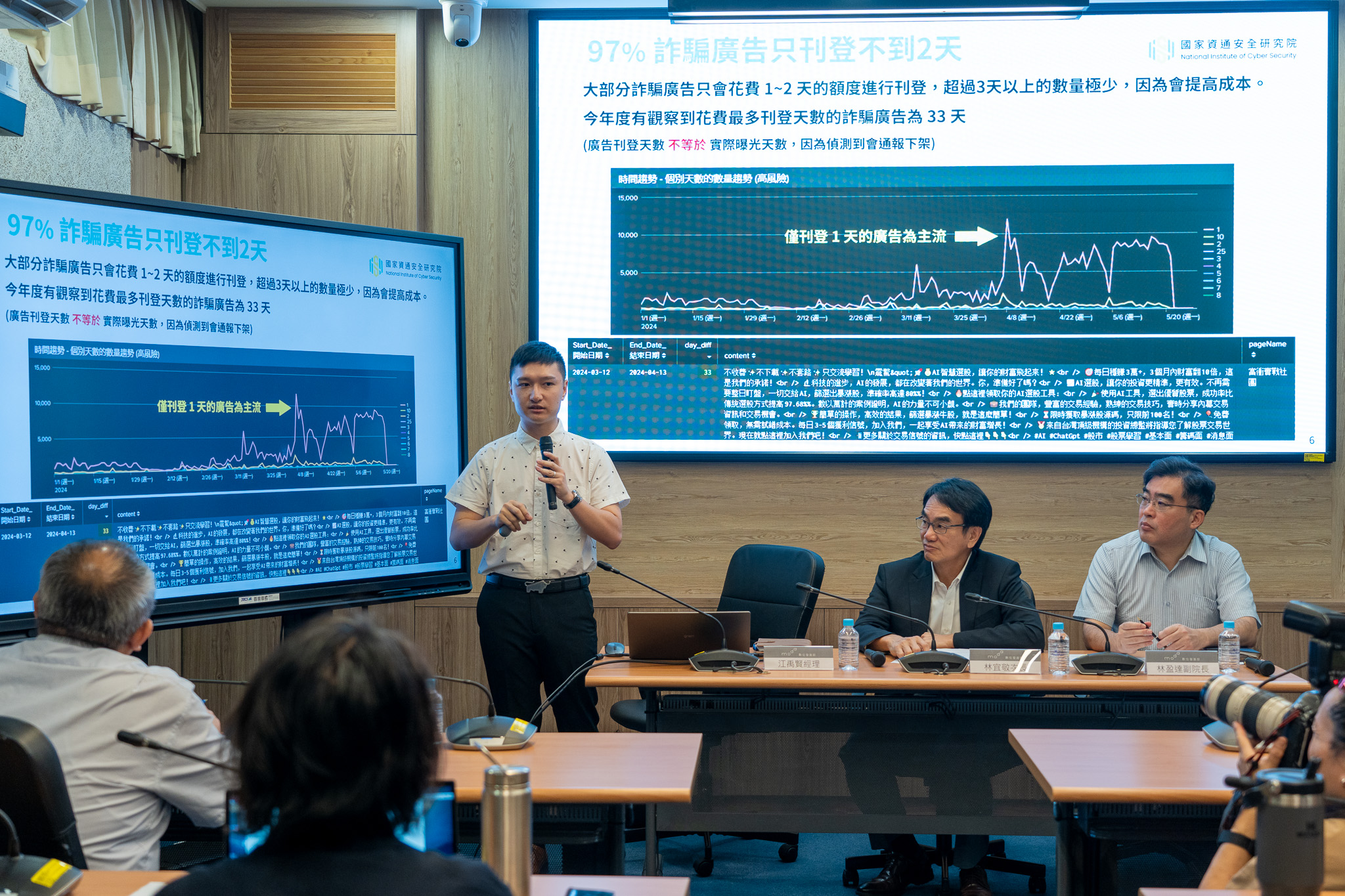Ministry of Digital Affairs Will Use AI Techniques to Increase Detection Rates of Fraudulent Advertisements on Social Media; Relevant Techniques Will Strengthen Anti-Fraud Operations
Deputy Minister Yi-Jing Lin announced today that combating fraud requires tackling its spread from the source. The Ministry of Digital Affairs is leveraging advanced technology to improve fraud detection and prevention efficiency and effectiveness. This approach aims to quickly and comprehensively counteract fraud through integrated efforts. Commissioned by the Ministry of Digital Affairs(MODA), the National Institute of Cyber Security(NICS) has developed a series of anti-fraud technologies, including 'fraud keyword extraction, data mining, and information tracing.' These tools help swift identification of fraudulent messages and enable continuous monitoring to predict and prevent potential fraud more effectively and accurately. For instance, the NICS is currently developing AI techniques to recognize names and accounts, which has achieved an accuracy rate of over 93%. Relevant techniques can help the government promptly initiate anti-fraud actions.
MODA points out that fraud has become a significant threat in a highly digitized and networked society globally. Aside from causing severe impacts on the security of people's properties, fraud has further challenged societal trust and stability. Traditional prevention methods are insufficient to fight against ever-evolving fraud tactics. The rapid advancement of generative AI has led to sophisticated text, video, and deepfakes, making it increasingly difficult for humans to distinguish between real and fake.
Under the guidance of the Administration for Digital Industries and following policies of the Ministry of Digital Affairs, the NICS has developed a comprehensive anti-fraud standard operating procedure encompassing 'identification alert, verification, and validation, cleanup, and blocking, as well as investigation and evidence collection.' This initiative integrates cutting-edge technologies such as big data analytics, artificial intelligence, and machine learning to create an efficient, intelligent, and integrated cross-sectoral anti-fraud collaboration and information exchange platform.
NICS analyzed fraud cases in Taiwan in the past two decades, alongside research from the FBI, Australia's National Anti-Scam Centre (NASC), and the UK Home Office. NICS has identified nine major types of fraud: romance scams, financial investment scams, product and service scams, scams of unexpected wealth, extortion and blackmail, identity impersonation, job scams, money mule schemes, and charity donation scams. The most prevalent frauds are hybrid scams involving financial investments, identity impersonations, and romance. The NICS notifies the public to be particularly cautious of emerging scams such as fraudulent romance consultations, confusing official website URLs, fake courses, event registration scams to steal personal information, and impersonating charity organizations.
MODA emphasized that effectively combating fraud requires collaborative verification efforts across departments and active participation from platform operators to immediately remove rapidly generated fraudulent information. Therefore, strengthening the cross-departmental joint defense mechanism will be a critical strategy for the MODA and relevant government agencies in combating fraud. MODA will continue to collaborate with the private sector and fully leverage the technological development capabilities of the NICS and other affiliated organizations. Through approaches like advancing regulatory governance, techniques development, and awareness enhancement, the MODA aims to proactively strike at the roots of fraud, preventing it from arising and protecting citizens' rights, ultimately providing a safer, more secure, and trustworthy digital environment for the public.

